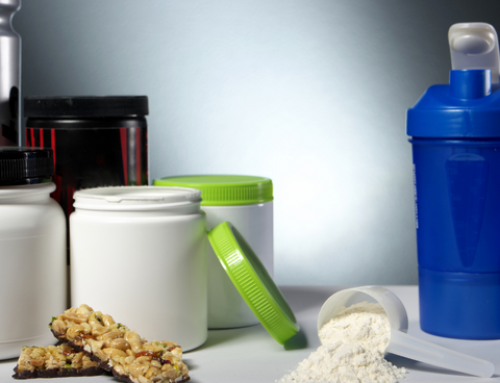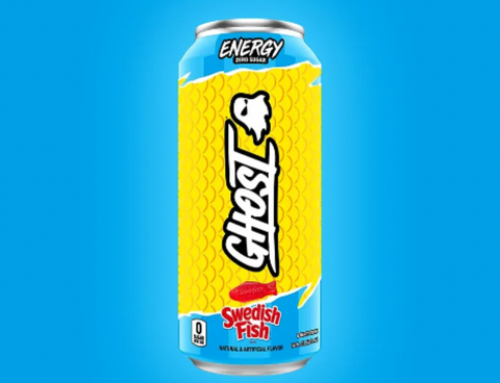When Should I Take Creatine?
Creatine is probably the most well-researched supplement on the market today. Numerous studies have found positive adaptations in strength, power and muscle mass thanks to creatine supplementation—especially when it’s combined with resistance training.
Although the benefits of creatine are well-known to lifters, the best time to take it isn’t common knowledge. Which leads us to some important questions:
- Does an optimal time for consuming creatine exist?
- If it does, should you take it before or after your workout?
According to a new study published in the Journal of Exercise and Nutrition, the timing of creatine ingestion does indeed play a role in getting bigger and stronger.
Creatine supplementation before resistance training increases muscular strength and lean muscle mass. Interestingly, taking creatine immediately after lifting weights results in greater muscle growth than taking it immediately before. However, in terms of strength gains, no difference between pre- and post-workout ingestion was observed.
How to Use This Information
Unless you’re a “non-responder” (an individual for whom exogenous creatine has no effect), taking creatine is better than not taking it. It’s one of the few legal supplements out there that has been shown to produce notable strength and size gains time and time again in controlled studies.
As far as loading goes, you’ve got two equally effective options:
- Load up on creatine with around 20 g/day for 5-7 days, or
- Take a standard dosage of 3-5 g/day for a month
Both approaches produce similar outcomes. It takes about 30 days of regular doses to reach muscle creatine contents that can be achieved in five days of high loading. The results then normalize going forward. So, your choice of loading protocol comes down to personal preference and how quickly you want to see positive effects. If you plan to use creatine long-term, high loading is not necessary.
With that in mind, to optimize muscle gains, add 5 grams (or 20 grams if you’re high loading) of creatine into your post-workout shake or mix it into water right after training. Gulp that drink down and you’re all set.
References:
Izquierdo, M. et al. “Effects of Creatine Supplementation on Muscle Power, Endurance, and Sprint Performance.” Medicine and Science in Sports and Exercise. 2002 Feb; 34(2):332-343.
Volek, JS. et al. “Performance and Muscle Fiber Adaptations to Creatine Supplementation and Heavy Resistance Training.” Medicine and Science in Sports and Exercise. 1999 Aug; 31(8):1147-1156.
Volek, JS. et al. “Creatine Supplementation Enhances Muscular Performance During High-Intensity Resistance Exercise.” Journal of the American Dietetic Association. 1997 Jul; 97(7):765-70.
Ziegenfuss, TN. et al. “Effect of Creatine Loading on Anaerobic Performance and Skeletal Muscle Volume in NCAA Division I Athletes.” Nutrition. 2002 May; 18(5):397-402.
Kreider, RB. “Effects of Creatine Supplementation on Performance and Training Adaptations.” Molecular and Cellular Biochemistry. 2003 Feb; 244(1-2):89-94.
Forbes, SC & Candow, DG. “Timing of Creatine Supplementation and Resistance Training: A Brief Review.” Journal of Exercise and Nutrition. 2018; 1(5).
Persky, AM. et al. “Clinical Pharmacology of the Dietary Supplement Creatine Monohydrate.” Pharmacological Reviews. 2001 Jun; 53(2):161–176.
Photo Credit: ChesiireCat/iStock
READ MORE:
RECOMMENDED FOR YOU
MOST POPULAR
When Should I Take Creatine?
Creatine is probably the most well-researched supplement on the market today. Numerous studies have found positive adaptations in strength, power and muscle mass thanks to creatine supplementation—especially when it’s combined with resistance training.
Although the benefits of creatine are well-known to lifters, the best time to take it isn’t common knowledge. Which leads us to some important questions:
- Does an optimal time for consuming creatine exist?
- If it does, should you take it before or after your workout?
According to a new study published in the Journal of Exercise and Nutrition, the timing of creatine ingestion does indeed play a role in getting bigger and stronger.
Creatine supplementation before resistance training increases muscular strength and lean muscle mass. Interestingly, taking creatine immediately after lifting weights results in greater muscle growth than taking it immediately before. However, in terms of strength gains, no difference between pre- and post-workout ingestion was observed.
How to Use This Information
Unless you’re a “non-responder” (an individual for whom exogenous creatine has no effect), taking creatine is better than not taking it. It’s one of the few legal supplements out there that has been shown to produce notable strength and size gains time and time again in controlled studies.
As far as loading goes, you’ve got two equally effective options:
- Load up on creatine with around 20 g/day for 5-7 days, or
- Take a standard dosage of 3-5 g/day for a month
Both approaches produce similar outcomes. It takes about 30 days of regular doses to reach muscle creatine contents that can be achieved in five days of high loading. The results then normalize going forward. So, your choice of loading protocol comes down to personal preference and how quickly you want to see positive effects. If you plan to use creatine long-term, high loading is not necessary.
With that in mind, to optimize muscle gains, add 5 grams (or 20 grams if you’re high loading) of creatine into your post-workout shake or mix it into water right after training. Gulp that drink down and you’re all set.
References:
Izquierdo, M. et al. “Effects of Creatine Supplementation on Muscle Power, Endurance, and Sprint Performance.” Medicine and Science in Sports and Exercise. 2002 Feb; 34(2):332-343.
Volek, JS. et al. “Performance and Muscle Fiber Adaptations to Creatine Supplementation and Heavy Resistance Training.” Medicine and Science in Sports and Exercise. 1999 Aug; 31(8):1147-1156.
Volek, JS. et al. “Creatine Supplementation Enhances Muscular Performance During High-Intensity Resistance Exercise.” Journal of the American Dietetic Association. 1997 Jul; 97(7):765-70.
Ziegenfuss, TN. et al. “Effect of Creatine Loading on Anaerobic Performance and Skeletal Muscle Volume in NCAA Division I Athletes.” Nutrition. 2002 May; 18(5):397-402.
Kreider, RB. “Effects of Creatine Supplementation on Performance and Training Adaptations.” Molecular and Cellular Biochemistry. 2003 Feb; 244(1-2):89-94.
Forbes, SC & Candow, DG. “Timing of Creatine Supplementation and Resistance Training: A Brief Review.” Journal of Exercise and Nutrition. 2018; 1(5).
Persky, AM. et al. “Clinical Pharmacology of the Dietary Supplement Creatine Monohydrate.” Pharmacological Reviews. 2001 Jun; 53(2):161–176.
Photo Credit: ChesiireCat/iStock
READ MORE:











